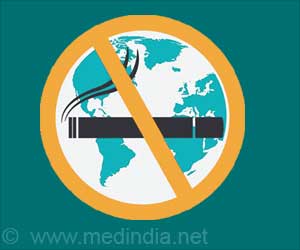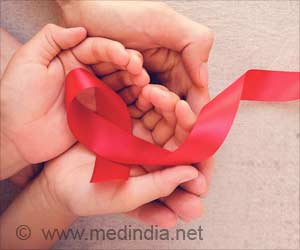The World Health Day 2018 is observed on 7th April with the theme ‘Universal Health Coverage: everyone, everywhere’ and the slogan is ‘Health for All’ given by the World Health Organization (WHO).
- The World Health Day is observed every year on 7th April and the theme for 2018 is “Universal health coverage: everyone, everywhere”
- Universal health coverage (UHC) provides quality health services to all citizens, without any financial difficulties
- The World Health Organization (WHO) aims to inspire, motivate and guide UHC stakeholders to achieve universal health for everyone and everywhere
“Health for all” has been WHO’s guiding vision for more than seven decades and helps support countries in achieving Universal Health Coverage (UHC). The WHO will organize events throughout this year, starting on World Health Day with global and local conversations on how to achieve health for all.
Role of WHO in Universal Health Coverage
The first World Health Assembly was held by WHO in 1948. The WHO’s principle is that all people should be able to realize their right to attain the highest possible level of health.The WHO organizes international, national and local events on the day relating to that year's theme. Also, various governments and non-governmental organizations observe World Health Day with several activities being organized on this day.
World Health Day is one of the eight official global health campaigns marked by the WHO. Other health campaigns include World Tuberculosis Day, World Hepatitis Day, World AIDS Day, World Immunization Week, World Malaria Day, World Blood Donor Day, and World No Tobacco Day.
The Universal Health Coverage can only be achieved when political will is strong. Political will is the motive force that aids in generating political action.
All world leaders have made a committment to take steps to improve the overall health of people, which means that they would need to ensure that everyone, everywhere can access essential quality health services without facing any financial hardships.
Why Universal Health Coverage?
The Universal Health Coverage (UHC) matters as it plays a crucial role in enhancing the lives of people and life expectancy. UHC is also important as it helps protect countries from epidemics, lowers poverty and hunger risk, creates jobs, improves economic growth and enhances gender equality.Importance of World Health Day
This year marks the 70th anniversary year of World Health Day and the WHO is calling on world leaders to live up to the pledge they had made during the Sustainable Development Goals (SDGs) in 2015.On this World Health Day, the WHO aims to inspire, motivate and guide UHC stakeholders to achieve universal health for everyone and everywhere. Only, few countries have made progress towards universal health coverage and there is still half the world’s population unable to receive the needed health services.
If countries have to achieve the SDG target, there are still one billion people who need to benefit from UHC by 2023.
World Health Statistics of 2017
The World Health Statistics is an annual compilation of health statistics by WHO for its 194 Member States.Globally, almost half of all deaths are now recorded with a cause. The new data highlights the improvements made by countries in collecting vital statistics and monitoring progress towards the SDGs.
- In 2015, almost every day 830 women died due to complications of pregnancy or childbirth. By 2030, the global maternal mortality ratio has to be reduced to less than 70 per 100,000 live births.
- In 2015, the rate of neonatal mortality was 19 per 1000 live births. By 2030, end preventable deaths of newborns and reduce neonatal mortality rate to at least 12 per 1000 live births.
- In 2015, nearly 2.1 million people were newly infected with HIV. By 2030, the epidemics of AIDS, tuberculosis, malaria and neglected tropical diseases and hepatitis, water-borne diseases and other communicable diseases need to be ended.
- Diabetes, cancer, heart disease and chronic lung disease affect people who are between 30 and 70 accounts for 19 percent mortality. By 2030, the death rate needs to be reduced by one-third through treatment, prevention and promote mental health and well-being.
- In 2016, alcohol consumption was 6.4 liters in the age group of 15 years and older. There is a need to strengthen prevention and treatment of substance abuse.
- Nearly 1.25 million people died from road accidents in 2013, and a 13 percent increase is seen from 2000. By 2020, there is a need to reduce the number to halve from road traffic accidents.
- About 76.7 percent of women of reproductive age used a modern contraceptive method for family planning. By 2030, families need to have access to sexual and reproductive health-care services such as family planning.
- Data collected from 117 countries shows that an average of 9.3 percent of people in each nation spends more than 10 percent of their family budget on health care.
- One in 9 deaths is caused due to air pollution, which is the most significant environmental health crisis. Over 80 percent of the world’s cities have pollution levels that are exceeding WHO’s guidelines for safe air. By 2030, the number of deaths and illnesses caused due to hazardous chemicals, air, water, and soil pollution and contamination need to be reduced.
Health Care in India
India's constitution promises free healthcare for all citizens in the country. All government hospitals provide healthcare free of cost. However, the majority of healthcare in India is taken care by the private healthcare sector, and most healthcare expenses are paid out of the patients' pockets, rather than through insurance.Insurance is available for patients to help pay for their healthcare costs, which is often provided by their employers. Many Indians turn to private healthcare providers due to lack of adequate coverage by the health care system in the country. On the other hand, private hospitals offer world-class quality health care in India.
More recently Prime Minister Modi’s budget in India too is aiming to cover the citizens of the country under a ‘Universal Health Coverage’ plan and if this happens in India, it will be perhaps the largest such program in the world.
Mr. Uttam Bose, Group CEO at CK Birla Hospitals, Kolkata said “Being a research-oriented hospital, on World Health Day, 2018, we endeavor to innovate more robust and state-of-the-art medical technologies and drive greater awareness around it to impact the lives of millions. Through patient-centricity, advancement of knowledge and enhancing access to quality healthcare for everyone, we can build an ecosystem that is equipped to diagnose, treat and cure critical ailments. We hope this year we can inspire and motivate everybody to pledge for a healthy lifestyle keeping all diseases at bay!”
Wellness Tips for a Healthy Lifestyle
Wellness refers to sound physical and emotional health, improved by adopting a healthy lifestyle. Lifestyle refers to a set of attitudes, habits, or possessions associated with a particular person or group. Here are some tips for you to improve your health.- Eat timely, eat healthily
- Exercise regularly
- Get enough sleep
- Stay hydrated
- Avoid alcohol
- Quit smoking
- Maintain a healthy body weight
- World Health Day Campaign Essentials - (http://www.who.int/campaigns/world-health-day/2018/campaign-essentials/en/)
- International Commonwealth Fund - (http://international.commonwealthfund.org/countries/india/)
- 5 Ways to a Healthy Lifestyle - (https://www.healthykids.nsw.gov.au/parents-carers/5-ways-to-a-healthy-lifestyle.aspx)
- Quality Of Health Care In India: Challenges, Priorities, And The Road Ahead - (https://www.healthaffairs.org/doi/abs/10.1377/hlthaff.2016.0676)












